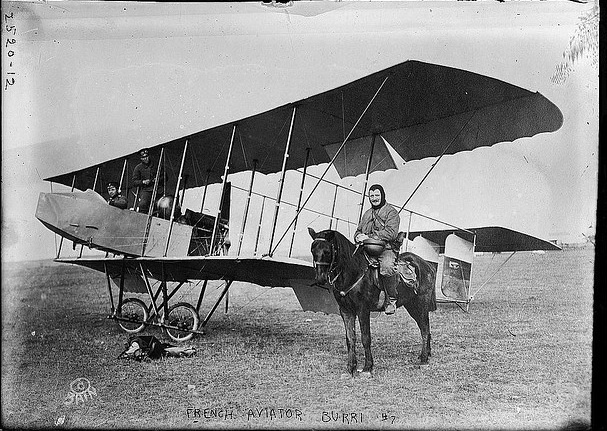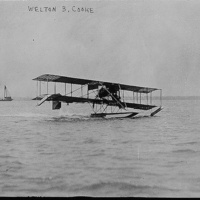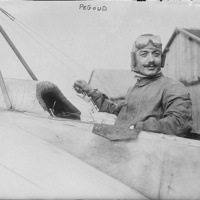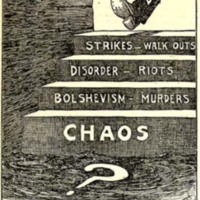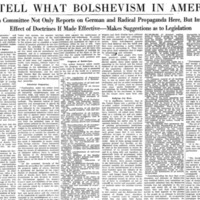Search Disabled on Archive Site
Aviators Lived for Six Days on Shellfish
Aviators Lived for Six Days on Shellfish
the police compelled the demonstrators to lower these flags and ordered the convention not to exhibit any red emblems save the red in the starry banner of the United States; it may not be indiscreet to state, however, in any case it cannot dim his glory, that General Pershing was confined to his stateroom through seasickness when the message arrived. Old Fellow of 89 Treasures Chewinggum as Precious Souvenir Couldn't Maintain His Serenity In Closing League Debates
This newsreel piece is unusual in running three different narratives together: the headline "Aviators Lived for Six Days on Shellfish", a newspaper fragment beginning "the police compelled the demonstrators...", and another newspaper headline or fragment beginning "Old Fellow of 89".
1. "Aviators Lived for Six Days on Shellfish": I was unable to locate a similar news story. Attached are three photographs of aviators from 1910-1915.
2. "the police compelled the demonstrators..."
"A news description of police control of a political convention at which red flags were prohibited" (Trombold 291). The U.S. "First Red Scare", a panic over communists in the U.S., took place 1919-1920, following on tensions from WWI and the 1917 Russian Bolshevik Revolution. Attached are a November 1, 1919 New York Evening Telegram cartoon showing a slippery slope from labor agitation to chaos and a June 15, 1919 New York Times article on "Bolshevism in America".
3. "Old Fellow of 89..."
The "Old Fellow of 1889" could refer to someone who experienced a number of notable 1889 events, including the 1889 founding of the Second International, U.S. militrary intervention in Samo in 1888-1889, and U.S. military presence in Hawaii during the 1889 revolution.
The "league" is possibly a reference to the League of Nations, an intergovernmental council debated and founded at the Paris Peace Conference.
Source(s)
Information Source:
Trombold, John. "Popular Songs as Revolutionary Culture in John Dos Passos' "U.S.A." and Other Early Works." Journal of Modern Literature 19.2 (Autumn, 1995): 289-316.
Media Sources:
1. "Aviators Lived..."
a. "French Aviator Burri", ca. 1910-1915, The Library of Congress Flickr Stream. "Photo shows Swiss aviator Ernest Burri who flew for the French in World War I."
b. "Weldon B. Cooke", July 6, 1913. The Library of Congress Flickr Stream. "Photo shows airplane of aviator Weldon B. Cooke (1884-1914)."
c. "Pegoud", ca. 1910-1915, The Library of Congress Flickr Stream. "Photo shows French aviator Adolphe Pegoud (1889-1915)."
2. "the police..."
a. "Step by step greene", by Greene, November 1, 1919. New York Evening Telegram. Via Wikimedia Commons.
b. "OvermanCommittee", June 15, 1919. Image of newspaper article titled "Senators Tell What Bolshevism in America Means". New York Times. Via Wikimedia Commons.
Item Relations
This item has no relations.
